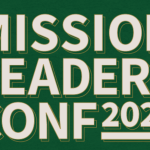Every once and awhile, it’s probably a good idea to refresh your mind on all those definitions at Joshua Project.net…
http://www.joshuaproject.net/definitions.php
I’ve found that audiences benefit from clarifying, for example, the difference between unreached and unengaged, as well as parameters constituting threshold measurements (such as 2% evangelical and 5% adherents). In fact, many audiences benefit from being reminded as to what constitutes an “evangelical.” Rumors that “everybody knows all this stuff,” are greatly overstated. Many are still newbies — and they don’t mind telling you so.












This material is dated. The new reality needs more emphasis on the reality of urban centers and urbanization. The old ethno/linguistic and people group models served a purpose but we know much more about cities than we did years ago.
Hi Garry. Sounds like you’re encouraging a “both/and” model, brother. Because as you know, it’s definitely true that just [barely] over half the world now lives in cities. But many [the majority] of those without access to the gospel… the truly unreached and unengaged… still live in rural villages, not cities. So although I applaud your request for more data about cities, please don’t assume that unreached peoples data no longer applies. It’s needed now more than ever, so we have a crystal clear image of the world, brother.
We need more emphasis on urbanization. This model is dated.
Thanks for the post. I’m a new “staff” here at JP and I agree, the definitions are important. One thing to keep in mind is that JP data is about people groups, not ministry methodology. Before serving with JP I served in Singapore, a very urban multi-ethnic center. What concerned me was how segregated the church and mission efforts were across the city. The main inspiration for me working with JP on my return from urban Singapore was this concern. Proximity to a church or Christians does not equal engagement. Simpy because “unreached” people live in the same apartment building as “reached”, dose not mean the reached group is reaching out to the unreached. We must reach the unreached wherever they are not being engaged. We also need to do a better job in unreached people group circles of communicating that the unreached are not limited to tribal groups in Asia, Africa and S. America.